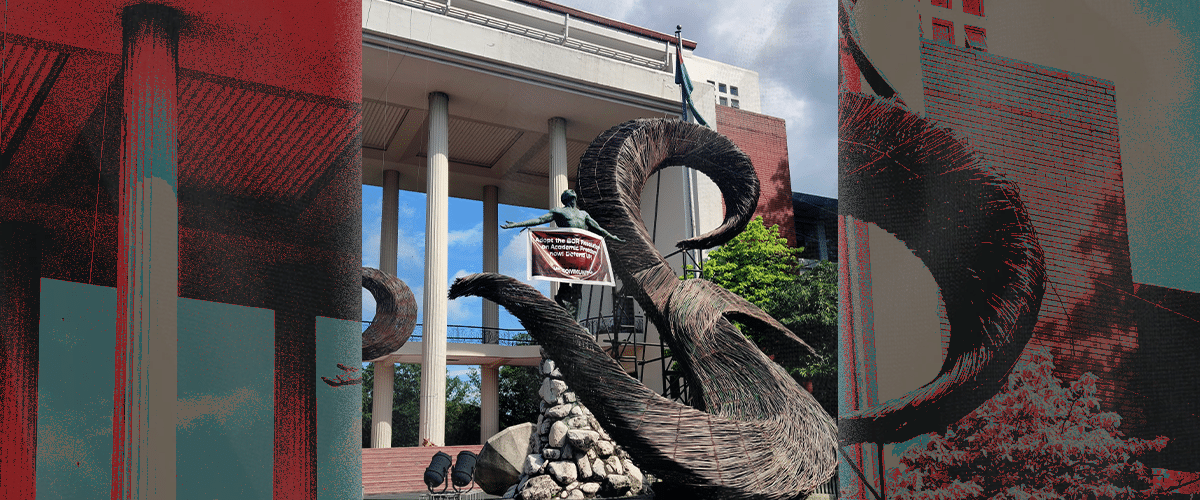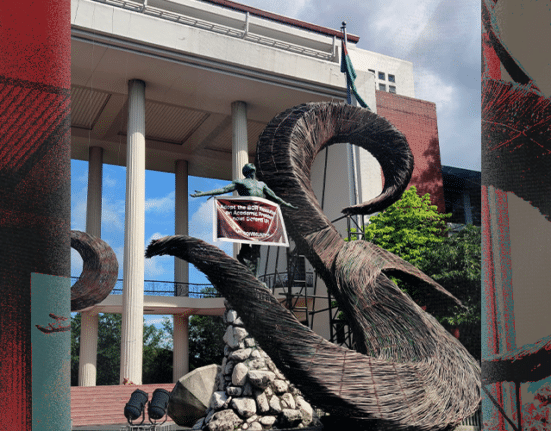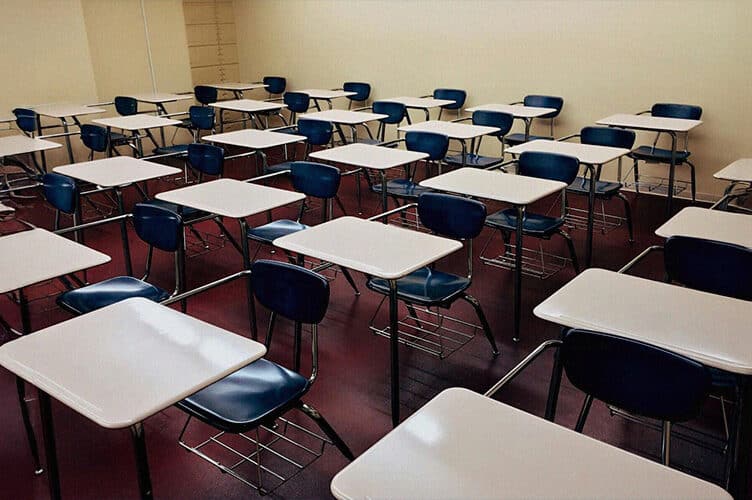I WOULD like to think that when schools like the University of the Philippines or Polytechnic University of the Philippines were established, they were created with those who cannot pay a year’s worth of tuition in mind.
The allure of state universities, aside from their prestige, is that they offer free tuition. This is why many choose to enroll in these schools because they cannot afford to go to college without proper support.
However, as the years passed, it seems that more and more upper-class students have started enrolling in state universities, leaving fewer slots for those who need it.
In 2013, for example, it was found that over 72% of UP students were in the A and B income brackets, while only 12% were in C, 9.6 were in D, and 6.2% were in E.
In 2017, Senator Francis Escudero even urged those students who were well-off not to partake in the free tuition offered by state universities, saying that it wasn’t good for their values to be seen driving expensive cars and studying for free despite being capable of paying tuition.
Netizen opinions
This issue has been a hot topic for quite some time now, especially when one X user asked why rich children are enrolling in public schools and universities when this slot could’ve very easily been given to a less privileged student.
They also say that because of this, the less fortunate are often more pressured to maintain good grades and fight for scholarships in private universities because all slots have been filled up in state universities.
Many agree with the feelings of this user, saying that the rich people who enroll in state universities often do so for bragging rights, or the prestige and the title.
Others, however, defend the former by saying that the blame should be put on the government, not the rich themselves.
Aside from this, they also defend them by saying that they have the right to choose to go to whichever university they choose, just like any other student.
Others also note that it would be unfair to separate these people because you’re going to be working with rich kids eventually, and that said separation would be perpetuating class division.
Student thoughts
Waywaya Daquigan, 21, is a second-year student at FEU Tech. While she had the choice to study at a state university, she chose not to because she was aware of the fact that she was privileged.
For her, it’s unfair to enroll in a state university when you can afford to pay tuition and when you are fully capable of attending a different university. However, she also feels that the privileged who have enrolled in these state universities are not to blame.
“UP is a top university, and it does open a whole lot of doors for many people, but it makes me think about how some of these people who go to UP because of its distinguished reputation are already there because of privilege, and [can] get connections without the help of a university,” she said.
“As much as brains are prioritized in the decision-[making] process of the university, why [can’t] they prioritize one’s desire of learning instead, especially to those [with] less financial capability? Why must quality education be so limited within the country when there are so many willing to learn?”
However, 23-year-old Mark Daniel De Castro, a Bulacan State University student, does not share the same sentiments.
De Castro enrolled in BulSU because he wanted the freedom to learn at his own pace without any academic pressure.
He felt that he’d better be able to develop his voice and identity as a visual storyteller here since he’s a BA Broadcasting student.
He also hoped that it would lead to greater access and partnerships with NGOs and LGUs looking for future stakeholders.
For this state university student, it isn’t unfair to attend a state university even if you can afford to pay tuition at a private school.
“There are no arbitrary rules and laws that restrict students to study anywhere,” he commented.
“It should be a system grounded in free decisions about what to teach and learn, when and how to pursue education, and how to preserve and protect diverse people, ideas, and ways of life. Otherwise, it’s freedom and the right to choose a decision without restrictions from moral aptitude.”
The history of public universities
When it comes to the foundation of Philippine state universities, it is believed that they were made for people who need them the most.
However, this has quickly become a debate amongst many between those who need it versus those who want it.
At present, it’s unclear how this question can be fully solved. How can one gauge how deserving a person is of a free education? How can one determine who needs it the most?
The answer between the two – as well as if they are interconnected – is still yet to be revealed.
However, it’s important to remember the reason why public state universities were made in the first place.
According to historian and writer Genevieve Carlton, Ph.D., they were established as a public commitment to educate society as a whole – created for the general good.
In the United States, there was a time wherein only a select few were allowed higher education in private colleges. Public universities were established as a means of making education accessible to anyone willing to learn.
When it comes to the discussion of state universities, it is easy to form your own opinions concerning the matter, as it is your right. But one cannot ignore the reasons behind the creation of these institutions.
More stories from republicasia:
UPD ranks first on top 10 universities in the Philippines
Do school supplies still matter for Gen Zs in the digital age?
How useful was this post?
Click on a star to rate it!
Average rating 0 / 5. Vote count: 0
No votes so far! Be the first to rate this post.
We are sorry that this post was not useful for you!
Let us improve this post!
Tell us how we can improve this post?









